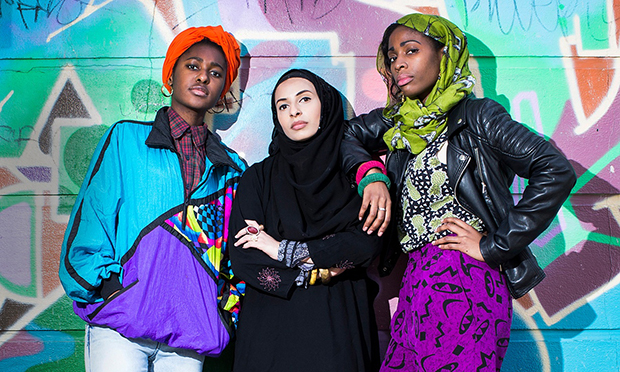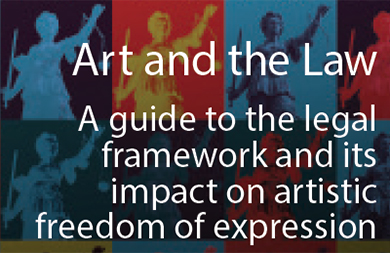Index relies entirely on the support of donors and readers to do its work.
Help us keep amplifying censored voices today.
Index on Censorship welcomes the latest statement from the National Youth Theatre (NYT) clarifying why it cancelled the production of Homegrown, a play which explored Islamic radicalisation among young people in the United Kingdom.
The production was two weeks into rehearsals when the cancellation was announced. The show, which had been in development for six months, was the product of workshops with British young people aged between 16 and 25. The production team and some of the cast released separate statements in response to the latest comments from the National Theatre.
Index remains deeply concerned that an arts project exploring an important subject, which young people of all ethnicities need to be able to discuss and debate, was closed down.
“We are worried that, without even a line of legislation being debated, the government has created an atmosphere whereby arts organisations are increasingly nervous of putting on any play that touches controversial subjects, and specifically the question of Islamic extremism,” said Index on Censorship chief executive Jodie Ginsberg.
“We recognise that arts organisations have a duty to protect staff and audiences, but worry that a fear of offence is preventing them from fulfilling their duties to protect free expression. Arts groups need more support from the authorities – such as local police and councils – to ensure controversial work can be staged.”
Art and the Law: Guides to the legal framework and its impact on artistic freedom of expression |
Child Protection: PDF | webCounter Terrorism: PDF | webPublic Order: PDF | webObscene Publications (available autumn 2015) Art and the Law main page for access to the guides, case studies and resources. |
The National Youth Theatre’s decision to commission Homegrown was born out of a proven track record of commissioning and producing work with young people, some as young as 14, that tackles challenging subjects and pushes artistic boundaries.
Our unique commitment as an organisation is to the creative and personal development of young people through theatre. That stated aim is what differentiates us and informs the work we do and the decisions made by our executive body. The NYT has never shied away from tackling controversial subjects. If this play was to provide those opportunities for the cast, we required the potentially controversial subject matter to be handled sensitively and with editorial balance and justification.
The decision to commission Homegrown was taken in view of those commitments and aims, and the decision to cancel it was taken according to the same criteria.
Despite a lengthy and willingly collaborative process, the co-creators were not able to reassure us that the content of Homegrown satisfied these understandable and important criteria. Our position was further compromised by the creative team’s inability to deliver a completed script at any time, therefore we could have no certainty that the play would either be ready for the planned opening night, or that if completed it would meet our aims and responsibilities as a youth arts charity. Complaints and concerns expressed by members of the production team, the cast and parents compounded the issue and rendered our position completely untenable.
Clearly our commitment to our members goes beyond an editorial one, and their safety and wellbeing is of paramount importance at all times. The subject matter of this play, its immersive form and its staging in a school required us to go beyond even our usual stringent safeguarding procedures to ensure the security of the venue and safety of cast members. However, we can categorically state that no external parties had any involvement in the decision to cancel the public presentation of Homegrown. It was a decision taken solely by the executive of the NYT and one that we sadly felt compelled to make.
We had hoped to address these differences out of the public gaze and directly with the creative team. However, we recognise the wider interest that the decision to cancel the production has attracted, and with the release of information today from the Arts Council it is only appropriate that we address this publicly and fully.
We do not regret commissioning Homegrown and wholeheartedly agree with those that have stated that the issues raised by the creeping radicalisation of the young should be addressed by the arts. We set out to do so but on this occasion were not successful.
We acknowledge that our view of the readiness of the play as an NYT production does not chime with that of the creative team. However we can only base our decisions on the facts, and on the unique criteria upon which the NYT is proudly founded.
We are releasing the rights in Homegrown to Omar El-Khairy and wish him and Nadia Latif well in securing another outlet for their show, when it is completed.
— Paul Roseby, artistic director of the National Youth Theatre

The 112 young cast members were two weeks into rehearsals when the production was cancelled. (Photo: Helen Maybanks / National Youth Theatre)
The following is a statement issued by the creative team behind the cancelled production Homegrown.
We were deeply shocked to find out in an email from the Artistic Director of NYT, Mr Paul Roseby, that the company had decided to cancel the production of Homegrown 10 days before the first preview. We have since been left disappointed and baffled that every subsequent attempt to meet with the NYT – including a meeting planned for Tuesday 11 August – has been either postponed or cancelled.
Homegrown was intended to be a site-specific theatrical exploration of radicalisation, the stories and communities behind the headlines and the perceptions and realities of Islam and Muslim communities in Britain today. The creative team and our cast of 112 young people were two weeks into rehearsals, the culmination of a six-month process, when the production was cancelled. There was no warning and no consultation. We feel that the reasons for this production being shut down have not been transparent, openly addressed nor fully addressed.
Not only have we been silenced, but our 112 cast members – who cared passionately about the show, its content and its questions – have had their artistic expression curbed. The following are just some of their words:
“I have no doubt in my mind that Homegrown would have been an incredible and hugely important production, and for those reasons I truly believe that even though it isn’t happening at present it absolutely must be resurrected in the future.”
“The issue of radicalisation and the role Islam plays in our society is one that needs to be addressed. It’s an elephant in the room for the UK that is not being currently explored.”
“I felt like a genuine creative; and with strong guidance we crafted responses to the world around us. Yet in a moment we were taken back to the level of “just kids” who need to be told what’s best and most safe for us, I can’t say how frustrating it is to go from a place of give and take discussion to top-down authoritarianism. It genuinely worries me on behalf of the freedom of speech promised to creatives in this country and I do feel silenced as an artist. The irony being that these are all strands that would have run through Homegrown.”
“To me, Homegrown being pulled was like my vocal chords being cut. It was everything that was needed to be said and everything that I always felt I couldn’t say.”
“I was genuinely thrilled and exhilarated every day as we peeled back yet more layers of the complex and nebulous issues surrounding radicalisation and Islamophobia”
“If you are going to take on a subject matter this sensitive then you have a responsibility to see it through. To a lot of us this was not just some controversial play we wanted to be a part of, it was about social change and awareness and staying ‘awoke’.”
We feel it is imperative, considering the current political climate, to open up and bring awareness to some of the broader issues and the socio-political landscape of radicalisation, homegrown extremism, and even the simple conversation about Islam. We are making art in a particular climate: the climate of PREVENT and CHANNEL – programmes which are creating an environment in which certain forms of questioning, let alone subversion, of the given narrative pertaining to radicalisation or extremism can be closed down.
It felt like battle lines were being drawn when, on the first day of rehearsals of a show that was to be denied its voice, David Cameron gave his strongest statement drawing links between non-violent extremism and jihadism. As artists we find it unseemly that we are having to defend our work in this manner but, also as artists, we would defend the irreducible right of all artists to make art.
We are keen to turn this into a positive galvanising moment and start a dialogue around these long-standing questions, and are reaching out to artists, institutions and individuals across a spectrum of industries to support us in opening up the conversation we had hoped to initiate with Homegrown.
Index on Censorship calls on the National Youth Theatre (NYT) to publicly and transparently disclose its consultations with police and council officials in the lead-up to the cancellation of the play Homegrown.
The team behind the production, which explored Islamic radicalisation among young people in the United Kingdom, released a statement that details the cancellation from their point of view. It is now up to the other parties involved to fully disclose their decision-making process to allow the public — including tax-payers who are funding this production — to understand this violation of free expression.
“We were deeply shocked to find out in an email that the company had decided to cancel the production of Homegrown 10 days before the first preview,” read the statement, which was signed by Mina Aidoo (choreographer), Omar El-Khairy (writer), Paris Erotokritou (associate director), Nadia Latif (director), Lorna Ritchie (designer) and Keziah Serreau (associate director).
The production was two weeks into rehearsals when the cancellation was announced, The Guardian reported. The show, which had been in development for six months, was the product of workshops with British young people between the ages of 16 and 25.
It is very worrying that an arts project exploring an important subject that young people of all ethnicities need to be able to discuss and debate has been closed down. Equally concerning are the actions of Tower Hamlets council, some allegations about police involvement and the absence of any clear and transparent public statement on the part of NYT.
Without even a line of legislation being debated, the government has created an atmosphere whereby a play about extremism can be cancelled with no reason given, in a completely opaque way with no respect for freedom of expression.
Police, councils and arts organisations have a duty to respect and protect freedom of expression — even, and most especially, where they disagree with the message or find it controversial.
• Cancellation of Homegrown is very worrying
 |
Child Protection: PDF | webCounter Terrorism: PDF | webPublic Order: PDF | webObscene Publications (available autumn 2015) |